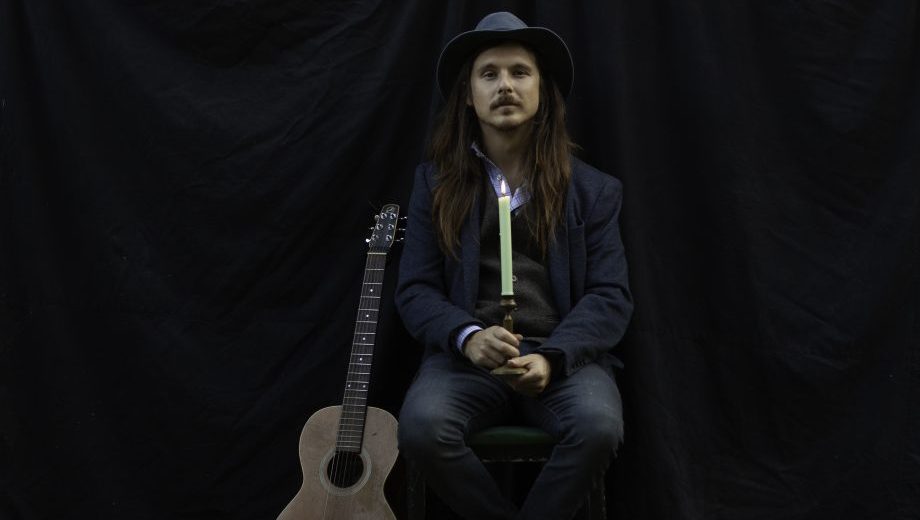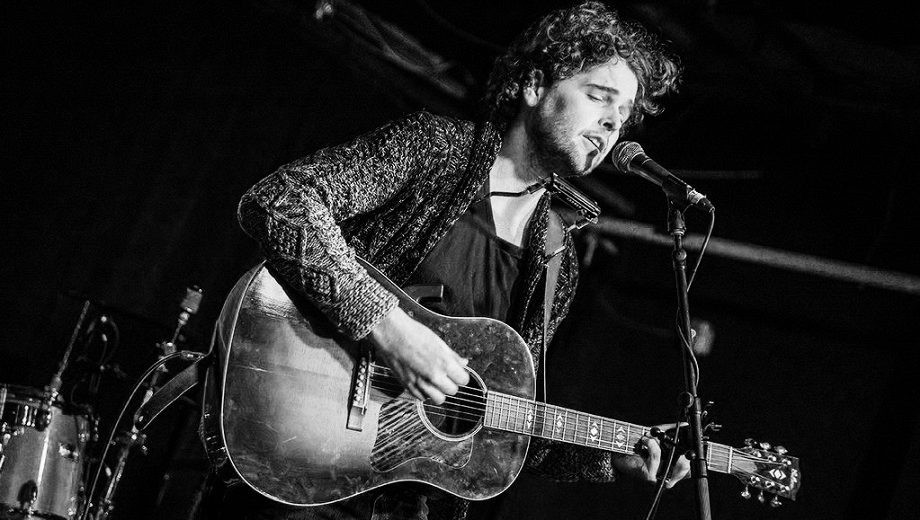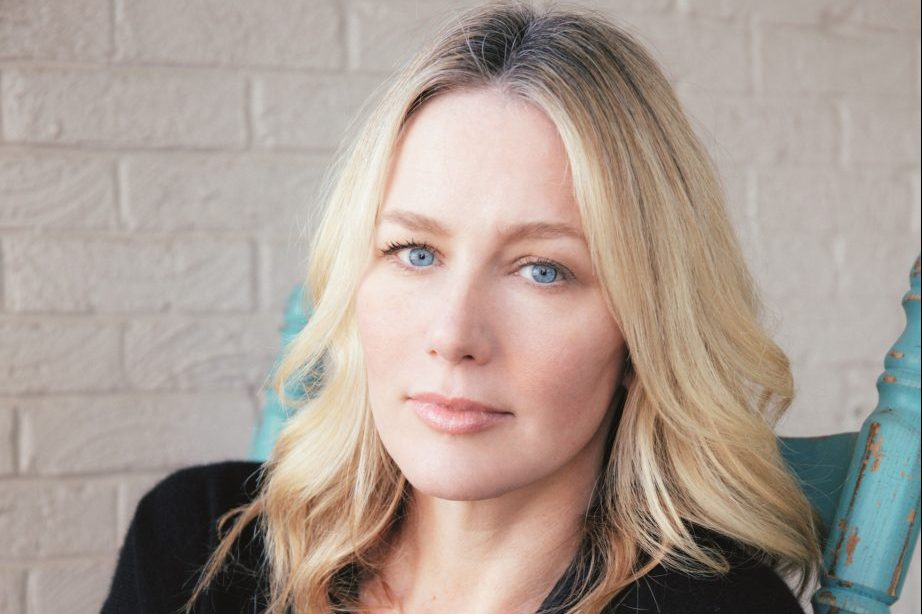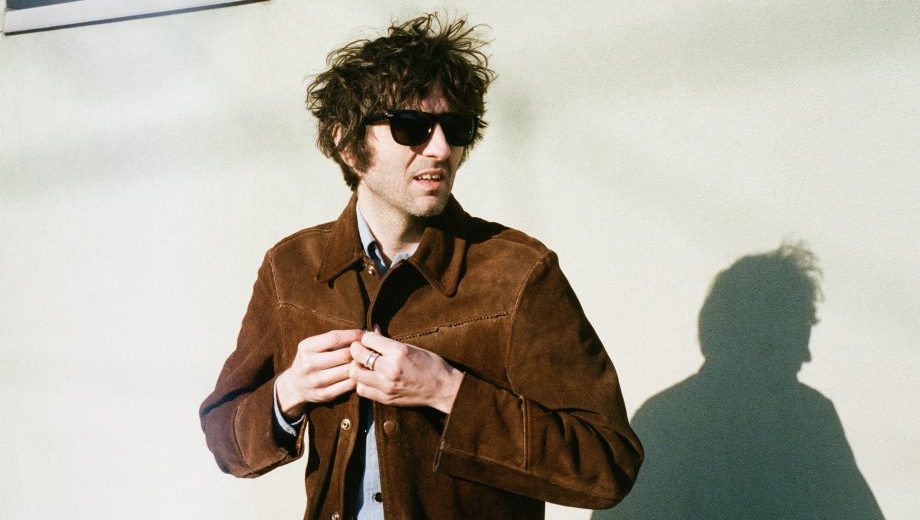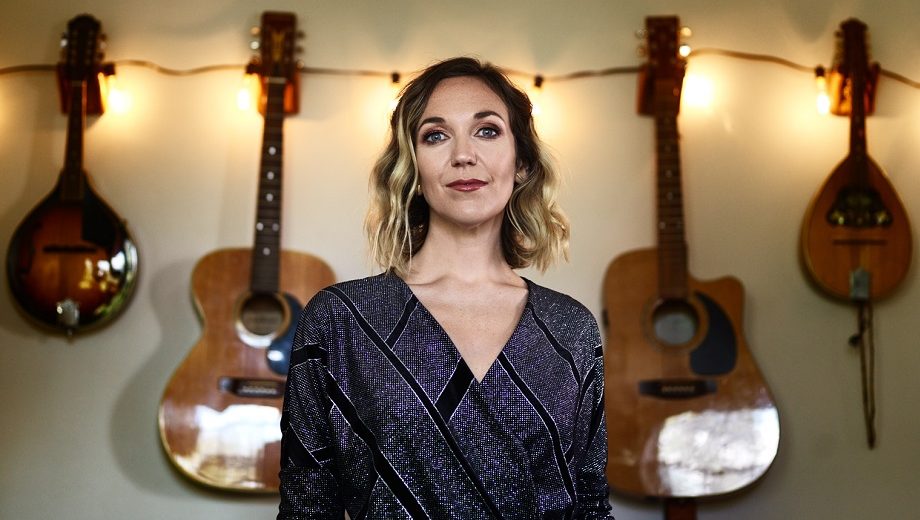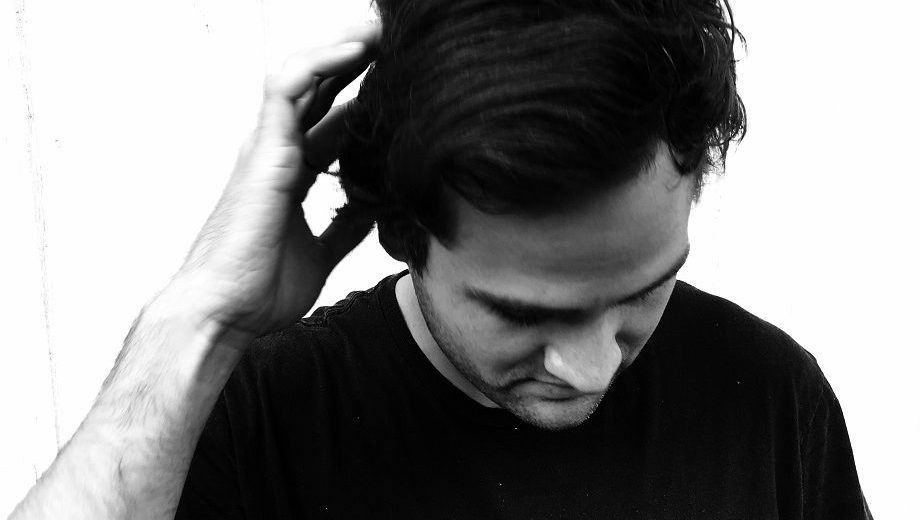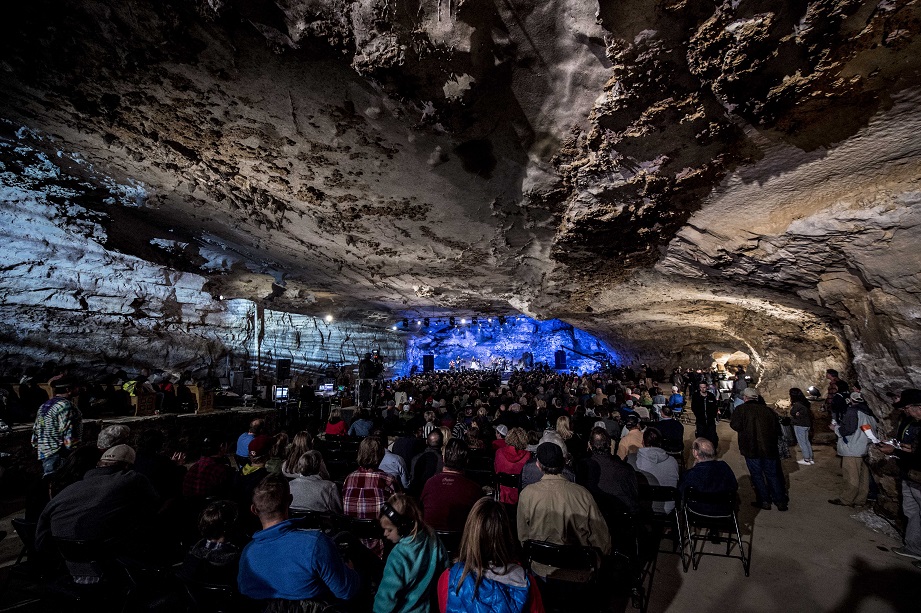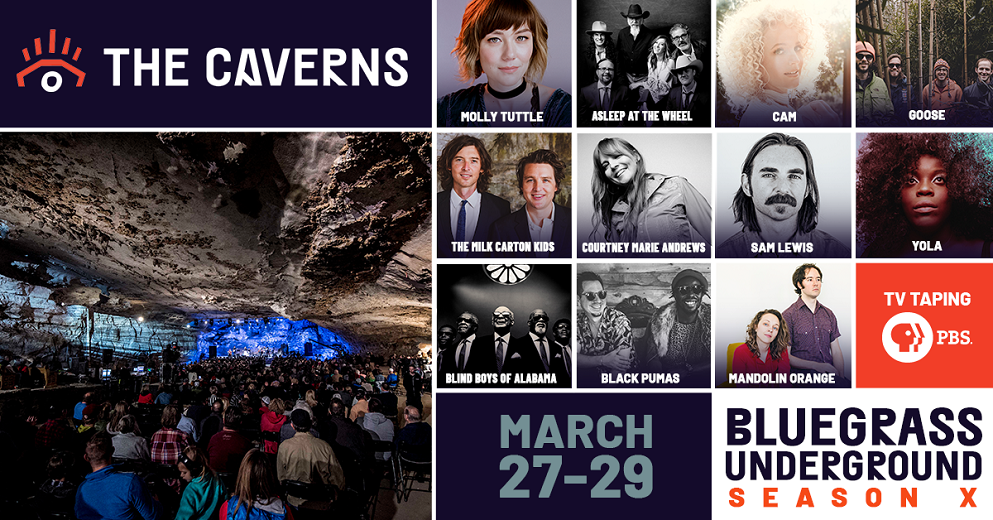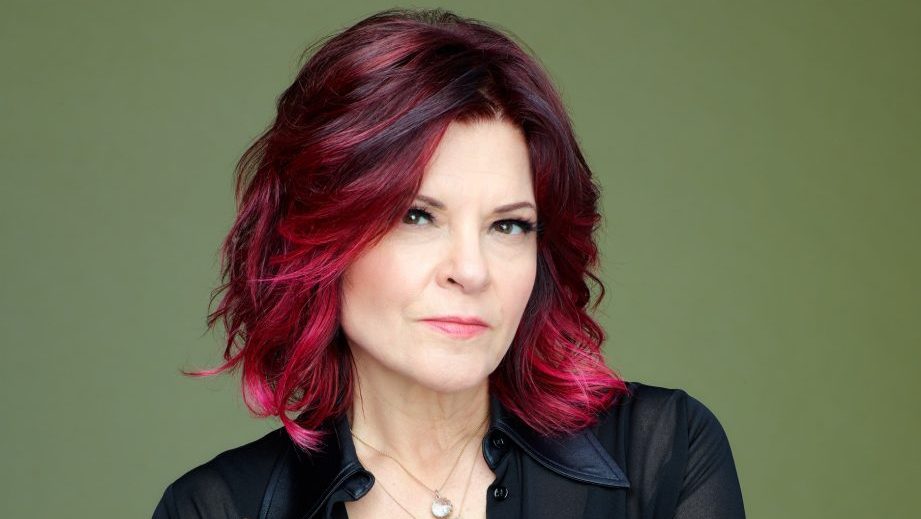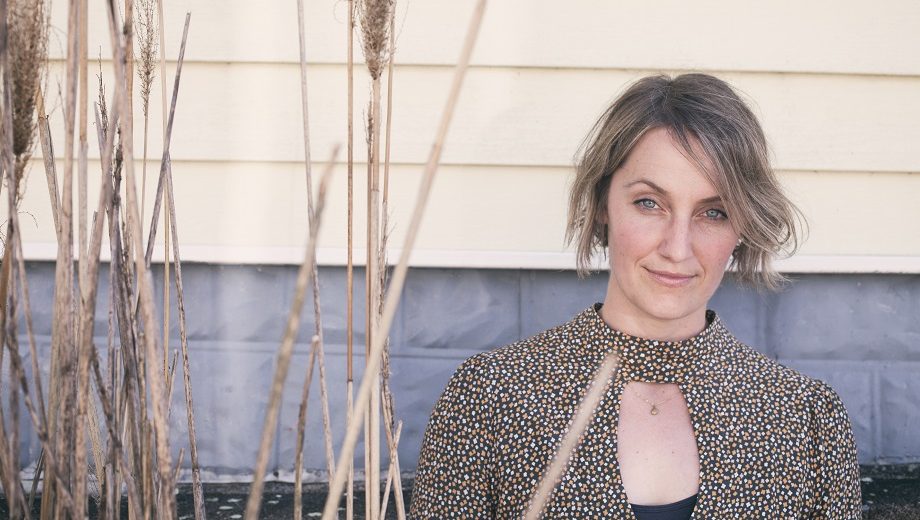Allison Moorer has always loved words and it shows in her new memoir, Blood. Expressed in a literary voice that’s both erudite and intimate, her writing goes well beyond the devastation of the 1986 incident where her father shot and killed her mother, and then himself. Surveying Blood as a whole, her childhood stories will be familiar to anyone who has grown up without money, who has relied on other family members to help raise them, and who has found an identity through music.
This fall, Moorer has been touring behind the book by presenting on-stage conversations with music-minded moderators, such as her sister Shelby Lynne (they affectionately call each other “Sissy”) and her husband Hayes Carll. During these events she performs music from her new album, also titled Blood. While that project is inspired by her family trauma, it is not a direct re-telling of it. Longtime producer Kenny Greenberg gives it a sonic texture that fits perfectly in a catalog that now spans two decades.
She caught up with the Bluegrass Situation by phone in between her travels.
BGS: I really admire the research you put into this project. You were willing to try to fill in some gaps. One of the passages that I thought was interesting was the email from your father’s friend, Leon, who wrote this line: “I’ve never figured out if Franklin was two people in one body or if he was one person who made a change into someone I did not know.”
AM: Yeah. That’s pretty powerful, isn’t it?
Do you remember the emotions you felt when you read that message from him?
I felt like I had been seen. Because that’s often how I felt about my father. One of the reasons I wrote to Leon in the first place was because very often I had heard about this great guy that my father was. So many people had admiration for him and the person that they described was not who I knew.
He was a teacher at Leroy High School. This was when I was very small but I remember him being the shop teacher, and he taught English. That’s how he was introduced to my mother in the first place, because he was a teacher where my aunt went to high school. He was a juvenile probation officer. His last job was overseeing the vocational school. And so he had an effect on a lot of people.
But at home, what I had in my mind was not matched up with this person that I heard people outside of our house describe. I spent probably too much time trying to reconcile that and what I know about that is we all are many things. Who we are on the outside is not always who we are on the inside, and we can be more than one thing at the time. So I think in some ways I came up with more questions than answers, but sometimes the questions are more important than the answers.
One thing I found interesting is that he seems to have passed on a love of music and a love of literature to you.
Absolutely.
Have you always been in love with words and storytelling?
Yeah. I don’t think that I knew when I was a kid that I was in love with words. I just knew I liked to read and I had an affinity for them. I somehow kind of knew how to read before I went to school. I went to first grade when I was 5 — funny thing about my momma, she decided that I didn’t need kindergarten and she forged my birth certificate and put me in first grade when I was 5.
It probably had something to do with her work schedule because kindergartners had a shorter school day I think. But they found out that, “Oh, well, Allison at age 5 goes in the advanced reading.” [Laughs] That’s a little revealing about who I am. But I definitely found solace in books and in music when I was a kid and still do, still very much do.
Your father was writing music and lyrics even before you and Shelby came along, but I didn’t know the history of “I’m the One to Blame” on your record. I heard the music before I read the book, then found out later that he wrote those lyrics. I was curious, how did the melody come about to that song?
Sissy wrote it. She found that lyric in his old briefcase, not long after they died. We were definitely in the throes of shock and grief, but I love that she was still able to go, “Hmmm, that’s pretty good. I think I’ll put tune to it.” [Laughs] She did, and she did a fantastic job. So that song’s been around all this time, and neither one of us had ever recorded it. I thought this album was a really good way to do that and to share that with the world. It was important to me that be heard and that he could finally get a song out there. I wanted to do that for him.
I think “The Ties that Bind” is one of the most eloquent songs you’ve ever written.
Thank you. I’m proud of that one, too. I think that’s something that every person asks themselves.
What was on your mind when you were writing that? Did you have to go to a certain frame of mind to get that song out?
Wrestling with the question of inheritance is a big deal for me. How do you take the good and not the bad? How do you make sense of where you come from, and from whom you come? And not drag all of the baggage with you? It’s a tough thing and it’s a never-ending question, right? It’s the theme of a lot of psychological exploration and family therapy and individual therapy. It depends on what school you come from, but a lot of things in people can be traced back to how they were raised, and by who raised them.
We inherited these qualities from our parents whether we want them or not. That’s what “All I Wanted” is about as well. It’s about that same thing – I really am sorry that I inherited your ability to argue with a fence post. But I’m really glad that I got, you know, whatever, this thing or the next thing. I think that’s something that we have to work at as people. I’m fascinated by families and by inherited traits.
There’s a passing reference in the book about how you can feel at home by putting books on the hotel nightstand. That struck a real visual with me. As you’ve moved over the years, you carried all your books with you?
Oh my God. You would not believe how much it cost to move those fuckers. Of course I did! And I’m sure you have the same problem. My books are my prized possessions in a way. I’ve got some guitars, I’ve got a kick-ass shoe collection, and my books, and my heirlooms from family and my little things… I don’t hang on to much. I’m not a hoarder of any kind. I like to keep things pretty sparse but it’s really difficult for me to get rid of a book.
You must feel very comfortable in a bookstore then.
I do. My dream job is to be a librarian.
I am curious about the book event that you just did in Mobile. Because so much of this book is set near there, what was it like for you to go back to that part of Alabama and tell the story?
Well, I played Birmingham on Wednesday night and Mobile on Thursday night, so I had family at both of them, and I have to say I was nervous about talking about this book in front of them. I didn’t ask permission from anybody, and I don’t have to, and I know that, but I still understand that some of these memories are painful. I also realize that some of the things that happened to my sister and me when we were kids might’ve still been unknown to some of our family members and our friends.
So, I’m aware of that and there’s part of me that wants to make sure everybody’s OK. But I also know that’s a trap. And taking care of people is not why I wrote this book. My desire to take care of people is not at all why I wrote this. I think that that’s worth mentioning because I think that not talking about these things is part of what perpetuates the cycle.
So I did feel very much that because I had family in the audience both nights, the instinct is to not say it, to not expose the secrets, to keep hiding because it makes everybody feel better. But what I know is that’s exactly the opposite reason of why I wrote this book. So I had to balance that with myself, and I was aware of it, and I just talked myself through it.
What caught me off guard in this book was the passage titled “What Happens When You Hit Your Daughter.” I felt that deeply.
A lot of people are feeling that.
What have people told you about that passage?
I’ve had a couple of people tell me that they’re going to hang it up in their office because they’re therapists. And I am no therapist. [Laughs] Or any sort of professional. I wrote that passage because I had done so much reading and research on the family and cyclical violence and what the effects of abuse are. On an intellectual level, it’s interesting, but on an emotional and personal level, it’s devastating to me. I have seen to varying degrees all of those things I talk about in that passage applied to my sister, I think. So I wrote it for us.
Look, it’s like this. I recognize that this book has done a lot for me in terms of me coming to terms with my childhood and in realizing what the fallout has been on us. It showed me to myself as art does. We reveal ourselves to ourselves through making art. And the wonderful thing about art and the purpose that it serves in the world is it serves as a mirror for other people. The job of the artist is to reflect the world.
And what I’m getting back from the world about this book is that it is encouraging other people to look under their own rocks and to look at themselves and look at where they came from. They want to then tell me their stories, which is a lot to absorb but I’m also honored and I’m happy about that because so much of these sorts of things are made worse by the shame that they put on us, because we’re told not to talk about Daddy’s drinking or Mama’s violence or whatever’s going on at home.
When children are told to deny what they see and hear and feel, they become distrustful of themselves. I have noticed that in myself. Because growing up we were always told, “Don’t say anything about this. Don’t say anything about that.” In essence, “This isn’t happening,” because you have to deny your feelings. I think that’s absolutely the wrong path. So if someone is able to speak their truth because I spoke mine, then it means I did a good thing.
Photo Credit: Heidi Ross
